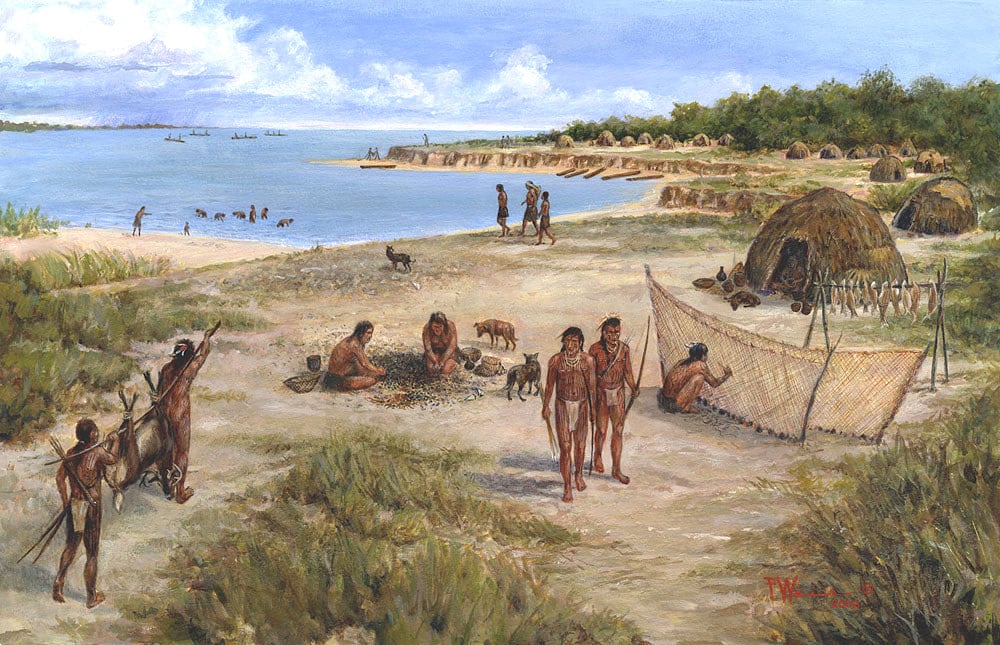Indigenous and Local Groups Urge Army Corps to Revoke Permit for Dormant Donnel Point Terminal in Ingleside
“The Port cannot rely on a decade-old permit for a project that no longer exists,” argues Bridgett McCoy, Earthjustice attorney representing the groups
Contacts
Dustin Renaud, drenaud@earthjustice.org
Two tribes and a local advocacy group are urging the U.S. Army Corps of Engineers (Corps) to revoke a federal permit for an export terminal proposed at Donnel Point, citing significant new environmental and cultural findings that they say invalidate the original authorization.
In a letter sent this week by their counsel at Earthjustice and University of Texas Environmental Law Clinic, the Karankawa Tribe, the Carrizo/Comecrudo Tribe, and the Coastal Watch Association asked the Corps to:
- revoke the permit for the cancelled project,
- conduct supplemental environmental and cultural reviews,
- deny any future permit extensions, and
- include the Karankawa and Carrizo/Comecrudo Tribes as formal interested parties in future proceedings
“This site was once a settlement of the Karankawa peoples. The Port should be open to culturally appropriate uses for this important coastal property — ones that respect both the land, the water, and the people connected to it,” said Love Sanchez, founder of Indigenous Peoples of the Coastal Bend.
The permit was first issued in 2016 to Cheniere Energy for a crude-condensate export terminal at Donnel Point. The Corps did an environmental and cultural resources review prior to issuing the permit, but did not test for historical artifacts at Donnel Point. In 2021, the Port of Corpus Christi acquired the permit and the site. Since then, the Port has sought new developers for what it describes as a potential “marine terminal.” The groups say the Port has effectively abandoned the original project and that any new proposal would require a new permit and updated environmental review.
“Federal law requires a new review when there are major changes or significant new information — and that’s clearly the case here,” said Erin Gaines of University of Texas School of Law Environmental Law Clinic, who represents the groups.
New Findings Since 2016
According to the letter, several key developments have occurred since the permit was first issued:
- Cultural discoveries: Archaeological evidence rediscovered in 2024 shows a Native settlement at Donnel Point, which the Karankawa and Carrizo/Comecrudo Tribes consider culturally significant. The Tribes, along with Coastal Watch Association, are asking the Texas Historical Commission to designate the site as a historic property.
- Environmental changes: Studies indicate seagrass depletion in the area, nearly doubled tanker traffic, and worsening flood risks from sea-level rise and bulkhead failures.
The groups argue that these developments qualify as “significant new information” under the National Environmental Policy Act (NEPA) and Corps regulations, requiring the Corps to supplement its original assessment.
“This site and its surroundings have changed so dramatically since 2016,” said Patrick Nye, president of the Coastal Watch Association. “Tanker traffic has doubled in the area and seagrass has been significantly impacted over that period. Adding another marine terminal could exacerbate those new issues.”
The permit is set to expire in December 2026, but the groups are urging the Corps not to issue any extensions, arguing that doing so would allow the Port to repurpose an outdated authorization for a new, undefined project.
The Army Corps has not yet publicly responded to the groups’ request.

Additional Resources
About Earthjustice
Earthjustice is the premier nonprofit environmental law organization. We wield the power of law and the strength of partnership to protect people's health, to preserve magnificent places and wildlife, to advance clean energy, and to combat climate change. We are here because the earth needs a good lawyer.